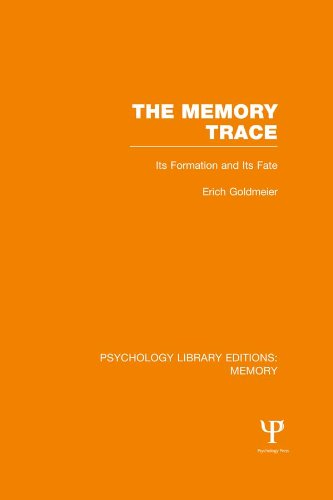Theory that if we are correctly said to remember some fact or event (as against relearning it, guessing it, and so on) there must be some physiologically identifiable trace in the brain which carried the information in question right through from the time when we first learnt it.
The trace need not be a physical object; it could be an electrical circuit or such like.
Source:
H A Bursen, Dismantling the Memory Machine (1978); critical
Table of Contents
- causal theory of memory
- identity theory of mind
- connectionism
- no-ownership theory of the mind
- causal theory of names
Last update 2020-06-17. Price and product availability may change.










